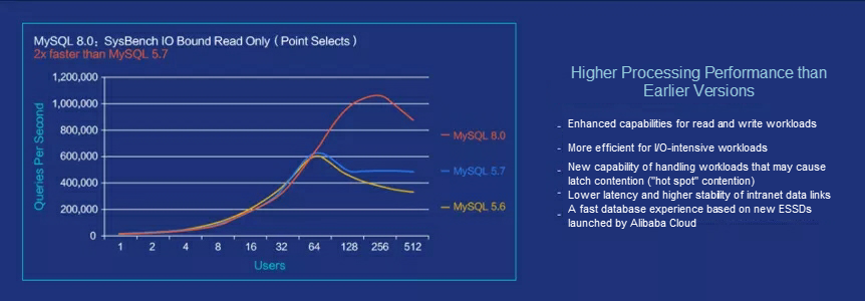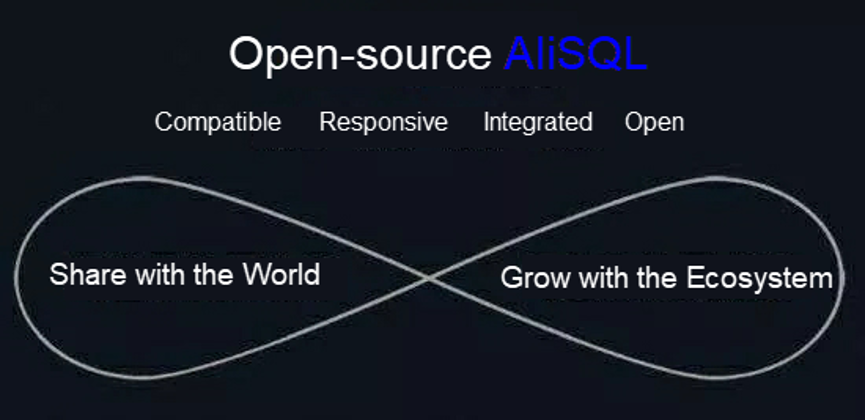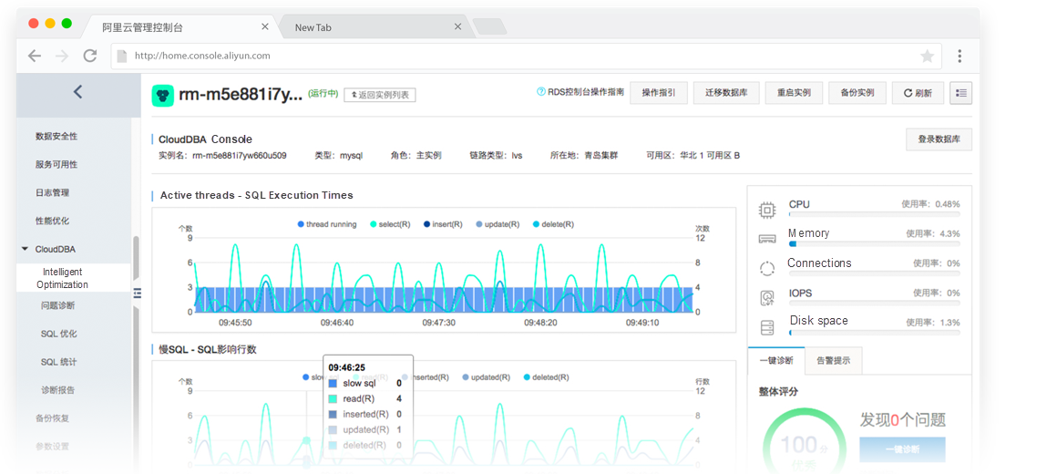Looking back, 2019 was one big year for Alibaba Cloud ApsaraDB RDS for MySQL. We released core features, upgraded its performance, and even launched innovative new products. So, with all of that said, let's look at the year-end results of this stellar product.
Alibaba Cloud upgraded its Service Level Agreement (SLA) for ApsaraDB RDS for MySQL in December 2019. It promised to provide 99.99% availability for three-node Enterprise Edition instances deployed in three zones and for high-availability local SSD-equipped dedicated instances and dedicated hosts deployed in two zones. Alibaba Cloud is the first and only cloud vendor that has made such a commitment. This upgrade in availability SLA demonstrates Alibaba Cloud's confidence in its database technologies. This was made possible by our comprehensive technology upgrade and the trust of hundreds of thousands of Alibaba Cloud database users.
Alibaba Cloud took the lead to launch ApsaraDB RDS for MySQL 8.0 smoothly in May 2019 based on its efficient engineering capabilities. ApsaraDB RDS for MySQL 8.0 came with many exciting features, such as atomic data definition language (DDL) statements, instant column addition, window functions, Hash Join, and the Temp engine. Alibaba Cloud also launched ApsaraDB RDS for MySQL 8.0 (Enterprise Edition) for enterprise users ahead of all of the other cloud vendors.

ApsaraDB RDS for MySQL 8.0 offers the Basic Edition (Single-node) that is applicable to development and testing environments, and the High-availability Edition (Dual-node) that is applicable to the general production environment of enterprises and offers dedicated instances to ensure higher security and SLA assurance. It also provides the Enterprise Edition (Three-node) that ensures 100% data security and is applicable to transaction and accounting systems with high requirements for data reliability and to sectors such as finance, securities, government, and healthcare. Currently, ApsaraDB RDS for MySQL 8.0 covers the most product formats and meets all of the database requirements of a modern enterprise.
Alibaba Cloud launched ApsaraDB RDS for MySQL 5.7 Enterprise Edition (Three-node) in July 2019 and ApsaraDB RDS for MySQL 8.0 Enterprise Edition (Three-node) in December 2019. Compared with ApsaraDB RDS for MySQL 5.6 Enterprise Edition (Three-node), formerly known as the Financial Edition, version 8.0 has fully upgraded the kernel code and used the Paxos algorithm to write a new log synchronization mechanism. This has effectively improved performance and reduces costs. In ApsaraDB RDS for MySQL 5.6 Enterprise Edition (Three-node), all the three nodes require computing and data storage resources. However, in ApsaraDB RDS for MySQL 5.7 Enterprise Edition (Three-node) and ApsaraDB RDS for MySQL 8.0 Enterprise Edition (Three-node), the third node is used only for logs and requires only a few resources to synchronize and update a large number of logs. Therefore, these later versions has also effectively reduced overall costs and are available at a much lower price.
ApsaraDB RDS for MySQL 5.7 Enterprise Edition (Three-node) and ApsaraDB RDS for MySQL 8.0 Enterprise Edition (Three-node) provide general-purpose instances to further reduce enterprise expenditures. An entry-level instance with a single-core CPU and 2 GB of memory costs only RMB 300 a month. After some technical optimizations, the original limits on local storage space have been significantly reduced for dedicated instances so that they can meet various needs of enterprises.
After several months of development, Alibaba Cloud officially released the enterprise-level AliSQL Kernel of ApsaraDB RDS for MySQL 5.7 and 8.0 in September 2019. The new kernel version includes many enterprise-level database features:

ApsaraDB RDS for MySQL officially started to support enhanced SSDs (ESSDs) in April 2019. This allows our databases to meet requirements for large storage capacity. Currently, a maximum capacity of 16 terabytes is supported. In addition, ESSDs support storage encryption and online resizing, which greatly improves their security and availability.

ApsaraDB RDS for MySQL 5.7 and 8.0 officially started to support data encryption in December 2019. Now, all the second-generation security capabilities of RDS for MySQL have been completed, including transparent data encryption (TDE), secure sockets layer (SSL) encryption and closing, and Elastic Compute Service (ECS) security groups, as well as storage disk encryption, built-in keys, and key rotation. So, it's easy to see that ApsaraDB RDS for MySQL continued to lead the industry in security features in 2019.
In 2019, ApsaraDB RDS for MySQL 5.7 and 8.0 started to support database table restoration to ensure business continuity. This feature can be used to restore one table to a specified instance in an abnormal user scenario, which can significantly increase the restoration efficiency. This feature is also friendly to businesses such as gaming companies and online retail stores because it can help users quickly enable services and restore business.
Alibaba Cloud released the cross-region backup feature for ApsaraDB RDS for MySQL in 2019. This allows it to seamlessly back up the backup files of a user to another city, and therefore helps enterprises meet their industry-specific compliance requirements. Currently, cross-region backup files can be retained for up to five years.
Alibaba Cloud has launched Dedicated Proxy 2.0 for ApsaraDB RDS for MySQL 5.7 and 8.0, upgrading the multi-tenant proxy solution in ApsaraDB RDS for MySQL 5.6 to the dedicated proxy solution. In contrast to the multi-tenant proxy solution, in the dedicated proxy solution, each database instance cluster that includes the primary and read-only instances is an independent database proxy cluster with stable processing capabilities. Such a cluster allows adding proxy instances based on the system load to improve throughput capacity and provide consistent performance for highly concurrent requests for database read/write splitting. In addition, a dedicated proxy can be activated independently and does not have to be bound to the read/write splitting feature. Application connections do not have to be modified for a unified proxy when read/write splitting is activated. This avoids the complicated O&M workload entailed by repeated release.
In 2019, Alibaba Cloud upgraded CloudDBA, an excellent performance optimizer, to a new version for ApsaraDB RDS for MySQL. Specifically, CloudDBA was added with several key features such as full SQL statistics and analysis, performance trends, real-time performance, and session management. You can use CloudDBA to view and analyze system problems in real time. In addition, we released Performance Insight, which focuses on load monitoring, association analysis, and performance tuning for ApsaraDB for RDS instances. This tool can help you locate points with poor database performance based on the number of active sessions, find out sources of performance problems, and improve database stability in an easy manner.

In 2019, Alibaba Cloud released X-Engine, a database storage engine with a high compression ratio, for ApsaraDB RDS for MySQL. X-Engine is compatible with MySQL features and is widely used in many internal business systems of Alibaba Group. X-Engine can serve as a database that integrates online historical data and can fully compress data without sacrificing read/write performance. This is the biggest advantage of X-Engine. According to test results, X-Engine has almost the same tpmC performance as InnoDB in standard TPC-C test scenarios.
If your applications use a MySQL database with a large number of write operations and if you want to significantly reduce storage costs and have a certain demand for query due to logs, message archiving, or order data storage, X-Engine is your best choice.
Currently, the entire historical database for Alibaba's internal DingTalk message platform runs on X-Engine, which has reduced our overall costs by 60% compared with InnoDB.
In 2019, Alibaba Cloud released the innovative Dedicated Host Group feature for ApsaraDB RDS for MySQL. In a dedicated host group, you can purchase multiple hosts to form a host group. In the host group, RDS instances can be freely allocated as needed. Compared with the original solution that does not offer any dedicated host groups, a dedicated host group provides the following benefits:
In 2019, ApsaraDB RDS for MySQL continued to develop rapidly. In addition to the preceding key features, hundreds of other improvements were made to build core database capabilities based on enterprises' requirements. These improvements cover many aspects such as security, reliability, availability, scalability, and performance.
According to Shengtong, the Product Manager of ApsaraDB RDS for MySQL at Alibaba Cloud, RDS for MySQL must keep rapid development to maintain its lead in this increasingly competitive environment and meet the rapidly increasing requirements of cloud-based enterprises. This is what keeps RDS for MySQL at the front of the pack.
Really Worth it? How Does ApsaraDB for RDS and an User-Created MySQL Database Compare
Self-Driven Databases: Intelligent Parameter Tuning for Alibaba Databases Explained
Alibaba Clouder - December 25, 2017
Alibaba Clouder - August 1, 2019
digoal - February 20, 2020
ApsaraDB - February 22, 2023
ApsaraDB - August 12, 2020
francisndungu - December 12, 2018
 PolarDB for PostgreSQL
PolarDB for PostgreSQL
Alibaba Cloud PolarDB for PostgreSQL is an in-house relational database service 100% compatible with PostgreSQL and highly compatible with the Oracle syntax.
Learn More PolarDB for Xscale
PolarDB for Xscale
Alibaba Cloud PolarDB for Xscale (PolarDB-X) is a cloud-native high-performance distributed database service independently developed by Alibaba Cloud.
Learn More Database Overview
Database Overview
ApsaraDB: Faster, Stronger, More Secure
Learn More OSS(Object Storage Service)
OSS(Object Storage Service)
An encrypted and secure cloud storage service which stores, processes and accesses massive amounts of data from anywhere in the world
Learn MoreMore Posts by ApsaraDB